Azerbaijan 2020: Turning strength into sustainability
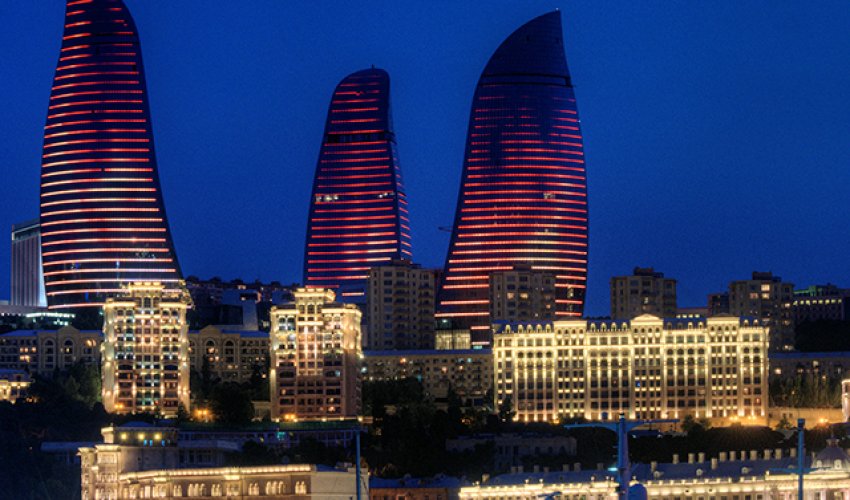
Over the past ten years Azerbaijan has been one of the fastest growing economies in the world. Rich hydrocarbon reserves and careful planning have enabled the country to build a healthy and forward-looking economy. Azerbaijan is now preparing to take the next leap.
A program for economic diversification and a clear vision for development are shaping the future of Azerbaijan as a globally competitive player, creating abundant opportunities for investment along the way.
Azerbaijan’s transformation is particularly impressive considering that twenty years ago it was mired in deep political and economic crisis. Amid post-Soviet uncertainty, the economy was in free fall, with a severe contraction in output and rampant inflation.
The revival of the country’s economy followed the introduction of a new oil strategy defined by Azerbaijan’s national leader Heydar Aliyev, which encompassed a series of production sharing agreements, and the opening of Azerbaijan’s historic oil sector to international investment. A 1994 agreement, hailed as the "contract of the century,” gave investors access to Azerbaijan’s rich oil fields in the Caspian Sea. The ensuing inflow of capital and expertise permanently altered the country’s fortunes. Large-scale production and the construction of multiple pipelines contributed to making Azerbaijan one of the world’s largest oil and gas exporters.
In June 2015, Azerbaijan will host the very first European Games—a new format of a major multi sport event for the entire continent, created at the December 2012 General Assembly of the European Olympic Committees—in its capital city of Baku. No other European nation had exhibited quite the same level of preparedness as Azerbaijan. This will be a unique opportunity for Azerbaijan to showcase the country and to make ‘Baku 2015’ the standard for all future European Games. Azad Rahimov, Minister of Youth and Sports and CEO of the Baku 2015 European Games Operations Committee (BEGOC), notes that "it is very important for us to deliver the message to the world that Azerbaijan can achieve international sporting excellence and leave a strong legacy. Azerbaijan will deliver a firstclass event that will create positive memories and excellent facilities to inspire not only Azerbaijanis, but also future countries hosting the event.” The Baku 2015 European Games will be the largest multisport event ever to be held in Azerbaijan, even if the country has past experience in organizing large cultural events. A total of twenty sports will be represented at the Games, including sixteen Olympic sports. More than six thousand athletes from forty-nine nations are expected to take part in seventeen days of competition. The Games are being given full government support. Azerbaijan’s First Lady, Mehriban Aliyeva, chairs the organizing committee that manages the event, in cooperation with the Baku City Executive Power and the National Olympic Committee of Azerbaijan. "We now have more than 1,000 people working for the Baku 2015 European Games, and this number will eventually increase to 1,500,” says Minister Rahimov. This includes international experts who have been recruited to ensure the highest level of professionalism.
Azerbaijan’s strong economic development, political stability, and commitment to dialogue and cooperation are dramatically changing the country’s international standing. Regionally, on the back of its economic power, it has become a key driver for further integration. Azerbaijan accounts for roughly 80 percent of gross domestic product (GDP) of the entire South Caucasus and attracts more foreign direct investment than any other country in the region. "Azerbaijan’s geographical location and economic potential require us to be an active player in the regional integration process,” says Elmar Mammadyarov, Minister of Foreign Affairs. "Occupying a crossroad between East and West, we have a longstanding tradition of building bridges between people and societies.”
In the wake of developing its hydrocarbon sector, Azerbaijan has established close links and economic ties with neighboring states and other countries in the region. It participates in numerous regional organizations and encourages closer cooperation. "Azerbaijan has been behind a number of regional projects, especially in the field of energy, transport and information communication technologies,” explains Mammadyarov. "Construction of the Baku-Tbilisi-Jeyhan oil pipeline paved the way for the completion and successful launch of the Baku-Tbilisi-Erzurum gas pipeline, as well as the Baku-Tbilisi-Kars railroad project and the TransEurasian Information Super Highway.
Azerbaijan has played an important role in the history of oil production. It was the site of the first oil field, drilled in 1846, and of the first offshore oil field. Morethan 150 years later, Azerbaijan still stands among the world’s great oil- and gas- producing nations. Without the revenues from oil and gas production, Azerbaijan’s recent and phenomenal growth over the past two decades would have been unthinkable. "More than one hundred billion dollars in revenues have been received since the establishment of SOFAZ in 1999,” says Shahmar Movsumov, president of the State Oil Fund of Azerbaijan (SOFAZ), which is responsible for collecting and managing oil and gas revenues. "Roughly 40 percent of these revenues have been saved and 60 percent have been invested into the economy of Azerbaijan."
Large-scale oil production took off with the development of Azerbaijan’s most prolific oil field, the Azeri-Chirag-Guneshli (ACG) field, located offshore in the Caspian Sea. The field became operational in 1997 and is managed by an international consortium headed by British Petroleum (BP), under a landmark production sharing agreement. Production at the field peaked in 2010, but it still accounts for about 80 percent of the country’s total output, even as new oil fields are coming on stream. Most oil is exported via the Baku-Tbilisi-Ceyhan (BTC) pipeline, which runs through Azerbaijan, Georgia, and Turkey and provides a crucial link to global markets. It has allowed Azerbaijan to massively increase production, reaching one million barrels per day (bbl/d) at its peak in 2010.
Azerbaijan is undergoing rapid socioeconomic changes, heralded by wide-ranging reforms, including the modernization of its public services. The ASAN-Service of the State Agency for Public Service and Social Innovations, which represents a quantum leap in the way public services are delivered, with equal access guaranteed to all citizens, is central to the country’s transformation.”
Since its establishment in 2012 as part of President Aliyev’s modernization initiative, ASAN Service has become a byword in efficiency and transparency. ASAN has significantly increased public confidence in state bodies and triggered a radical change in public perception of state administration. In a successful public-private partnership (PPP), ASAN service centers combine in a single administrative building state entities and private companies. Together they render over 200 services to more than 2,500 people per day. Available state, services include the issuance of IDs and passports, residence and work permits, notarized documents, renewal of driving licenses and the payment of fines. Private companies offer banking, insurance, utilities, translation and medical services. ASAN is also paving the way for e-government in Azerbaijan through the use of modern information technologies and service-specific software developed by Azerbaijani specialists.
Information and communication technologies (ICT) play a crucial role in Azerbaijan’s efforts to diversify its economy. Apart from a very real growth potential, ICT enables development of other industry sectors.”
"The ICT sector in Azerbaijan has been on the cutting edge of economic innovation,” explains Ali Abbasov, Minister of Communications and Information Technologies. "These innovations have spread across nearly every other industry, increasing efficiency and driving change in the way they operate, and the goods and services they produce.”
With annual growth rates between 20–25 percent, ICT has become the fastest growing sector in Azerbaijan. It is now the second largest recipient of foreign investment, after the oil industry, attracting due attention. "The presence of US companies such as Microsoft, HP, IBM and Oracle has contributed immensely to the development of the ICT sector in Azerbaijan,” says Abbasov. $3 billion have been invested in the sector in the last decade, with upward tendency.
Azerbaijan has made significant technological advances. In 2013, the country launched its first telecommunications satellite, delivering services to customers internationally. Azerbaijan was also the first country in the region to digitalize its fixed telephone network, linking all residences with telephone lines and connecting regional centers to the backbone fiber-optic network. It is now committed to building a transcontinental super information highway between Frankfurt and Hong Kong.
Azerbaijan’s rich historic and cultural heritage and unique natural beauty, which covers nine climatic zones, make the country an ideal destination for international tourism. "We are currently engaged in rethinking strategies for the diversification of areas of tourism and services, adopting new standards and norms, revising marketing and market penetration strategies, and establishing new mechanisms for cooperation between the public and private sectors,” says Abulfas Garayev, Minister of Culture and Tourism, describing efforts underway to shape the sector’s development.
Visitors increasingly recognize Azerbaijan’s appeal, beyond being a business destination. The number of visitors continues to rise. 2.5 million tourists visited the country in 2013, while income from international tourism increased from around $200 million in 2007 to approximately $1.5 billion in 2013. Travelers to Azerbaijan find services of the highest standards. The world’s top hotel chains, including the Four Seasons, Marriott, Kempinski, Hilton, Fairmont and Jumeirah, have long established their presence among a growing number of hotels.
(Azertac)
ANN.Az
Similar news
Similar news
Latest news 
More news 
























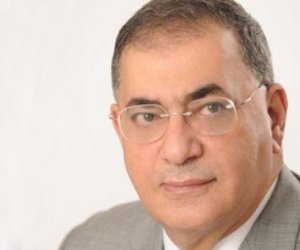
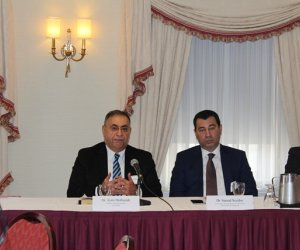
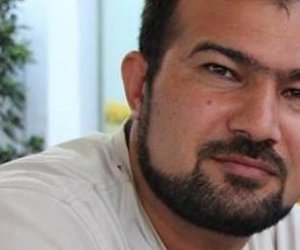
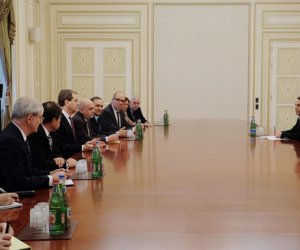
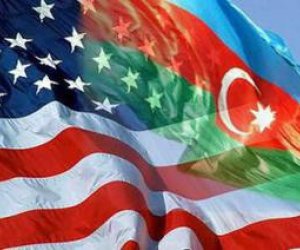
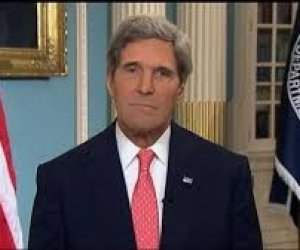


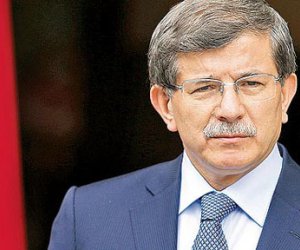


 Photo
Photo 



 Video
Video 

